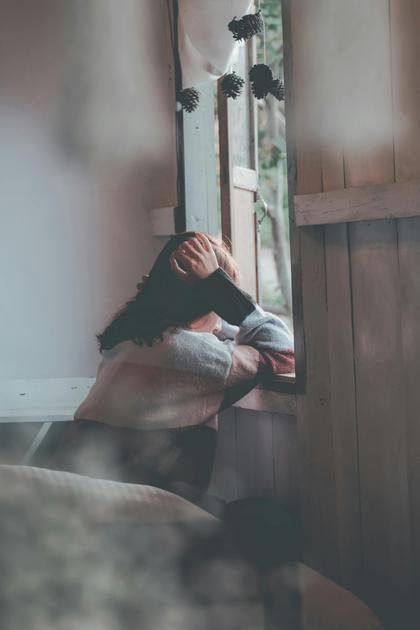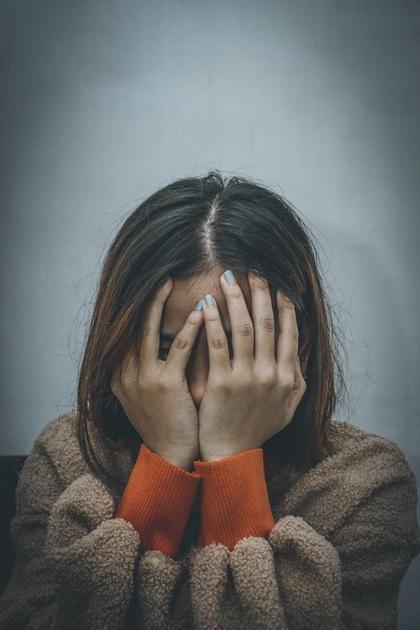Anxiety Triggers in Women Over 30: Explore the Hormonal Connection!
Do you find yourself feeling anxious and overwhelmed as you navigate life after 30? For many women, anxiety triggers can often hide in the depths of hormonal changes. Understanding this hormonal connection is crucial to relieving the silent battles we face daily. In this article, we will explore how hormonal fluctuations can ignite feelings of anxiety and what we can do about it.
Understanding Anxiety Triggers in Women Over 30
Anxiety can feel like a constant companion for many women over 30. It often arises unexpectedly, leaving you feeling overwhelmed and unsure of where these feelings come from. Understanding the unique anxiety triggers that affect women in this age group is crucial in managing its impact on daily life.
In this phase of life, many women juggle multiple roles — from career responsibilities to family obligations. With busy schedules, pressures can build, leading to anxiety. It is important to recognize that these feelings are not just part of life; they can be linked to physiological and hormonal changes that women experience as they age.
The Role of Hormones in Emotional Well-being
Throughout life, hormones play a significant role in emotional regulation. For women over 30, shifts in hormonal levels can directly correlate with anxiety. Hormones like estrogen and progesterone fluctuate due to life changes such as menstruation, pregnancy, and even perimenopause.
Estrogen, for instance, affects the brain’s neurotransmitters, including serotonin and dopamine, which are critical to mood regulation. When estrogen levels drop, many women report increased feelings of anxiety. Likewise, progesterone provides a calming effect, and its decline can result in feelings of unease.
Common Hormonal Changes That Influence Anxiety
Women typically experience several hormonal changes that can influence anxiety, including:
- Menstrual Cycles: Hormonal changes before and during menstruation can cause mood swings and anxiety.
- Pregnancy: Rapid hormonal shifts during pregnancy can lead to increased anxiety or depression.
- Perimenopause: This transitional phase before menopause can lead to irregular hormone levels, significantly impacting mood.
- Postpartum Hormonal Changes: After childbirth, fluctuating hormones can lead to higher anxiety levels.
Recognizing these hormonal influences is essential in understanding and addressing your anxiety triggers.
Identifying Personal Anxiety Triggers
Identifying what specifically triggers your anxiety is a crucial step in learning how to manage it effectively. Triggers can vary significantly from person to person and can include:
- Stressful life events (job changes, family issues)
- Physical health problems (chronic pain, fatigue)
- Financial worries or job instability
- Social situations or public speaking
- Environmental factors (overcrowding, noise)
Consider maintaining a journal to note when you feel anxious. This can help you track patterns and identify specific triggers unique to your situation. The act of writing can also provide relief, serving as an emotional outlet.
Practical Tips to Manage Anxiety Naturally
Implementing natural techniques can greatly assist in managing anxiety:
- Mindfulness and Meditation: Short daily practices can enhance self-awareness and reduce anxiety.
- Regular Exercise: Physical activity releases endorphins and can improve overall mood.
- Healthy Diet: Eating a balanced diet rich in nutrients supports hormone balance.
- Sufficient Sleep: Prioritizing rest can dramatically affect your mental clarity and mood stability.
- Deep Breathing Exercises: These techniques can calm the nervous system and reduce feelings of panic.
Finding a combination of these techniques that works for you can empower you to take control of your anxiety.
How Lifestyle Changes Can Help Balance Hormones
Making lifestyle changes can have a profound effect on balancing hormones, consequently reducing anxiety:
- Healthy Eating: Integrate whole foods, healthy fats, and plenty of vegetables to support hormonal health.
- Regular Movement: Aim for at least 30 minutes of exercise each day to help keep hormones balanced.
- Stress Management: Find effective ways to manage stress, such as yoga or tai chi.
- Adequate Hydration: Staying hydrated supports overall body functions, including hormonal health.
These small changes can yield significant results in managing anxiety levels.
The Importance of Self-Care for Anxiety Relief
In the hustle of daily life, it can be easy to neglect self-care, but prioritizing your well-being is essential in managing anxiety. Some self-care tips include:
- Create a Routine: Establish daily rituals that promote relaxation, such as reading or taking a bath.
- Indulge in Hobbies: Engage in activities you love; this can hugely benefit your mood.
- Quiet Time: Carve out moments of solitude to recharge and reflect.
- Connecting with Nature: Spending time outdoors can greatly improve mental health.
Remember, self-care is not selfish; it’s necessary for a balanced life.
Connecting with Supportive Communities
Isolation can magnify feelings of anxiety. Connecting with supportive communities can provide an invaluable source of comfort and understanding. Look for:
- Local support groups
- Online communities or forums
- Workshops or classes focused on mental health
- Faith-based communities, if applicable
Engaging with others who understand your struggles can significantly lightening your emotional load.
When to Seek Professional Help for Anxiety
There are times when self-help strategies may not be sufficient. Seeking professional help can provide additional support. Consider this option when:
- Your anxiety is persistent and interferes with daily life.
- Self-help strategies haven’t eased your symptoms.
- You experience physical symptoms alongside anxiety, like panic attacks.
- You feel overwhelmed and don’t know how to cope.
Therapists and counselors can offer tools and strategies personalized to your needs.
Finding Your Path to Emotional Resilience
Creating a journey toward managing anxiety is about discovery and learning what works best for you. Each woman’s path is unique, and while anxiety might seem insurmountable, remember that change is possible. By embarking on this journey with patience and openness, you, too, can find your emotional resilience and vibrant life again.
It is important to remember that you are not alone. Many have walked this path and found ways to improve their symptoms and challenges. Embrace the journey, and take the steps you feel resonate with you. There are solutions out there, and they are waiting for you to discover them.













